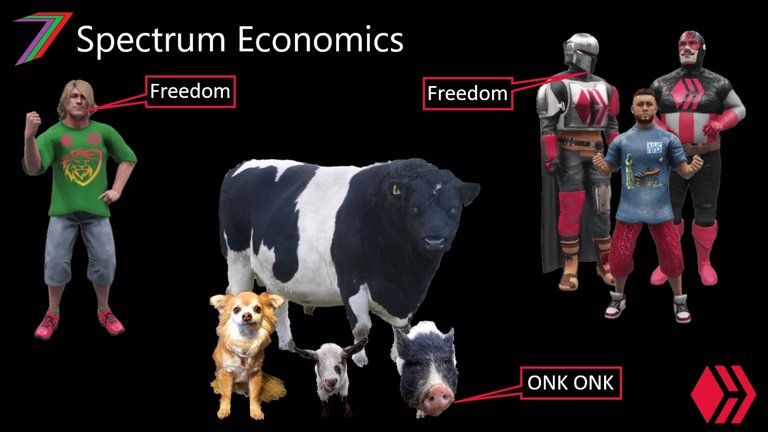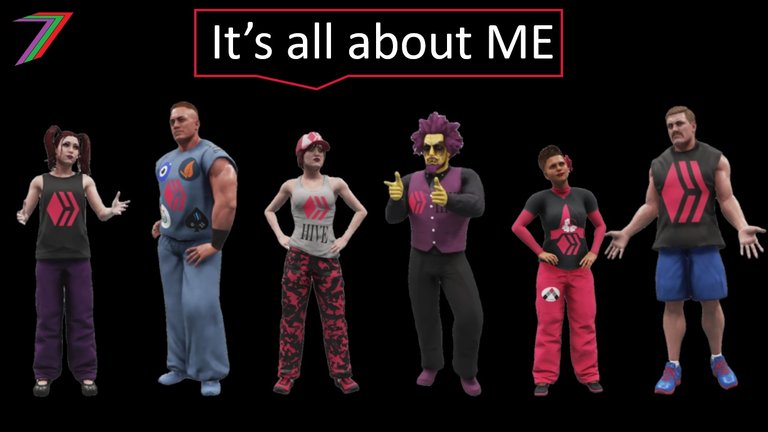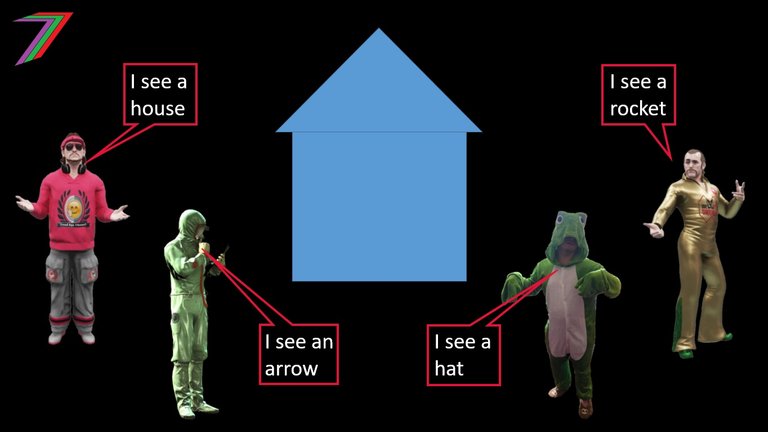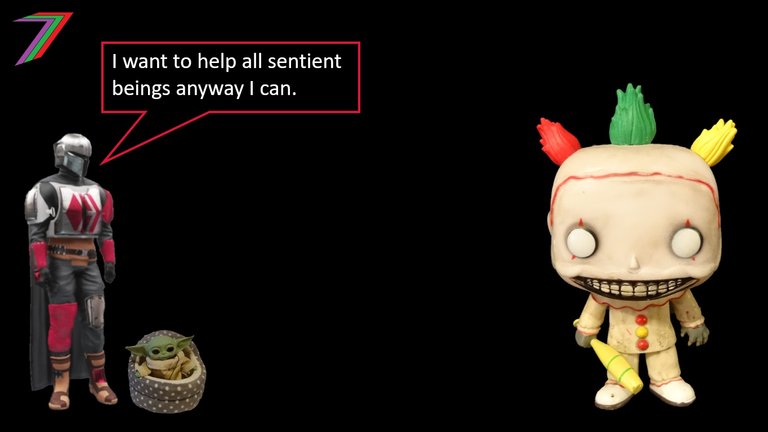Hi Everyone,

Many people appear to struggle to understand freedom and the importance of freedom. I believe people have grown too accustomed to being provided for by following the instruction of others (e.g. employers, teachers, parents, religious leaders, and Government). Even when not being instructed, people are subject to influences (e.g. media, celebrities, social media, and “activists”) that guide their thought process in particular directions. These influences may lead some people to oppose authority or decisions made by authority. This form of opposition is not a demonstration of freedom but a movement towards another form or side of authority.
When people acknowledge the importance of freedom, they rely on their own perspective. This could cause a failure to understand or appreciate how other people might apply freedom to their lives. In this two-part series, I discuss freedom and some of the problems we face in achieving it. In Part one, I discuss how our perceptions influence everything we believe and therefore, everything we do. I discuss how are perceptions are influenced and how our perceptions lead to different types of behaviour ranging from helping others to trying to harm them.
Nature of Us

I do not believe our human nature is complicated to understand. We are guided by our perceptions. We covet what is important to us; we pay less attention to what is not. Everyone is different. Even though many of us want similar things in life, we want them to different extents. We all prioritise our desires differently. We also vary in terms of what we are willing to sacrifice in order to achieve our desires. Some people have just a few very strong desires. Beyond these desires, everything else offers very little value to them. On the opposite end of the scale, there are people who have many desires and they offer a similar magnitude of enjoyment.
Other people and our broader environment are affected by our desires and how we obtain them. Achieving our desires can have a positive effect on those around us. For example, enjoying a day out with friends. Achieving our desires can have a negative effect on those around us. For example, vandalising someone’s property. It is possible achieving our desires can have positive effects on some people and negative effects on others. For example, if we win a competition. It has a positive effect on our teammates, family, and supporters but a negative effect on our opponents and their supporters. Achieving our desires may not have any identifiable effect on anyone. For example, a person choosing to live in isolation. However, if something has not been identified, it does not mean it does not exist.
There are often many steps involved with fulfilling a desire. For example, a person may desire a boat. In order to buy a boat, a person needs money. In order to obtain money, a person needs a form of income. Income is usually rewarded based on the sacrifice of something; this is often time. To obtain a higher income may require us to learn new skills, which will involve the sacrifice of time, and money. All of these steps will affect someone else. For example, a person could earn an income by offering a service. This service should benefit the person receiving the service (positive effect). However, a service performed dishonestly or incompetently will have the opposite effect (negative).
Perceptions

Perception is at the heart of everything we believe; thus, it is at the heart of everything we do. Perception does not necessarily align with reality. The closer our perceptions are to reality, the easier it is for us to use our freedom to achieve happiness; we will know our desires as well as have a clearer picture of what is needed to achieve them.
Potentially, our perceptions can be influenced by everything and anything we encounter. Some influences bring our perceptions closer to reality while others cause are perceptions to diverge further from reality. It is up to the individual to determine, which influences are given the most weight. The strength of these influences play a major role in how they are considered. The strength of these influences depends on a number of different factors. These factors could include:
- Extent of exposure
- Believed trust of the source
- Variety of influences
- Our ability or opportunity to interpret information
- Our own cultural background
- Consistency of message with our cultural background and/or belief system
We could consider the above factors on sliding scales from least to most. An influence is stronger when we are frequently exposed to it; strongly trust its source; have limited exposure to other, possibly conflicting influences; unable to or not given opportunity to interpret related information; come from a closed cultural background, and the message aligns with our cultural background and beliefs.
For example, the response to Covid-19. The media provides constant updates on positive test results, deaths, and number of vaccinations (high extent of exposure). The media often invites Government officials, doctors, and health experts to explain and describe the seriousness of the virus as well as the importance of Government interventions (trusted sources). The media focus on one set of opinions and social media make an effort to block, restrict, or censor alternative views (limited variety of opposing influences). The nature of SARS-COV-2 (virus causing Covid-19) is only understood by a few people; therefore, most people are dependent on secondary information rather than their own knowledge (restricted ability to interpret information). For many, a cultural background of believing in democracy and free press gives credence to the messages spread by Government and the Media (consistent with belief system).
Desire to help to others

Most people have at least some desire to help others. The extent of the help people are willing to provide can vary considerably. People help each other on a daily basis with small favours that require little to no personal cost. People may also help each other in very significant ways. This may lead them to forgoing their own comforts and even safety to do so. People help each other because they believe it is better to do so. There are many possible reasons why they believe this to be the case. Below are a few possible reasons.
- They obtain enjoyment from helping others.
- They have a deep connection to the people they are helping.
- They have a sense of obligation or duty to help.
- They want to create a positive public opinion of themselves.
- They believe the help they offered will be repaid in some form (e.g. returned as a favour or through karma).
- They feel guilt for not helping.
The reasons for attempting to help others are important. They provide the motivation to help and affect how that help is provided. People who help others out of enjoyment are likely to help a large variety of groups. People who help out of deep connection, guilt, desire for reciprocation, or obligation are likely to help just a particular group of people. People who help out of creating a positive image are likely to help whoever gives their actions the most visibility.
Reasons can affect the success of attempts to help others. Success depends on how well the attempt is performed and if the help offered, benefits the people being helped. How well an attempt is performed depends on the ability and motivation of those helping. The perception of the people helping determines what help is offered. People who help because of a deep connection might be the most motivated but they could also be the most emotional. High levels of motivation might improve chances of success but emotion may negatively affect ability and could also cloud perception of what type of help is needed most. People who help out of enjoyment or obligation might be motivated but with less emotion. They may have more experience in helping people and this should improve their ability to help as well as enable them to offer help that is of greater benefit. People who help to improve their public image would be more motivated to create the impression of success than actual success. The help they offer is less likely to be of real benefit.
Desire to harm others

Some people have the desire to harm others. They could be targeting a particular person or group of people. They could be willing to cause harm to anyone who crosses their path. Targeted attempts to harm others could be based on revenge, prejudice, obligation, obsession, misinformation, or jealously. Harming random people could be based on sadist pleasure, desire for power, or mental illness. These could be fuelled by an inability to feel compassion or empathy for other people and/or an uncontrollable urge to see others suffer. Regardless of the reasons, pursuing people with the intention of causing harm is not desirable for society from almost any perspective. However, causing harm to others is a possible use of our freedom.
The reasons for attempting to harm others are important. Most reasons are based on some form of perception.
For example:
- Revenge is often based on two perceptions. The first perception is that someone has caused them harm. The second perception is that they can inflict harm on the person that they perceived harmed them as a form of punishment.
- Prejudice could be based on the perception that another group of people are inferior and should be treated worse.
- Obligation could be based on instructions to harm a group of people who are claimed to be a potential threat.
- Obsession could be based on the perception someone can be used to fulfil a desire.
- Misinformation could create the perception that people from another group intend to harm them; therefore, they should be stopped, which would involve harming that group.
- Jealousy could be based on the perception that someone is being given an unfair advantage in life and should be harmed as way of creating fairness.
If the perceptions that caused the harmful behaviour can be changed, the harmful behaviour can be reduced or even stopped. A possible way to help people change their incorrect perceptions is by enabling them to access more information and by providing guidance on how to understand and interpret that information for themselves. For example, enabling people to understand why they have particular prejudices as well as enabling them to view the world from alternative perspectives.
For some people perception is not the main problem. Instead, they cause harm because they are unable to inhibit themselves because they lack the capacity for remorse, compassion and empathy (e.g. psychopaths and sociopaths) or they have a powerful addiction for causing others to suffer (e.g. sadistic personality disorder). These problems are more difficult to address. Even experts in psychology struggle to find solutions for people with these types of problems. In these cases, removal of their freedom through imprisonment or execution might be the only viable solution to protect the people they might harm.
My Final Thoughts (Part One)

I believe that to understand freedom and the value freedom can offer us, we need to understand how our perceptions are influenced and how perceptions affect how we think and behaviour. To have freedom is to have the ability to shape our lives. We could use it to improve our lives and even the lives of those around us. We could use it to worsen our lives as well as negatively affect those around us. I believe the best approach we can take is to aim to bring our perceptions as close to reality as possible. We will gain a better understanding of what we want and how we can get it. We will gain a better understanding of those around us as well as how our actions affect them.
In Part 2, I discuss freedom from a few possible perspectives as well as how conflicting desires and needs can cause people to impinge on each other’s freedom.
More posts

If you want to read any of my other posts, you can click on the links below. These links will lead you to posts containing my collection of works. These 'Collection of Works' posts have been updated to contain links to the Hive versions of my posts.
Hive: Future of Social Media

Spectrumecons on the Hive blockchain





And so on as you've stated. This simply shows that the principle of causality is existent in our desires and wants. It seems there is a chain or strings of things that needs to be done or needs to have especially when we are chasing our desires. In this place I tend to understand that our desires can have positive or negative effect. For example, some of the richest people in the world who are into humanitarian services, some of them their wealth was made by cheating, exploitation, taking control or taking away competition. While their wealth seems to be celebrated as a positive thing. The way they made these moneys must have directly had a negative effect on some other person's. I hope this situation portrays a vivid image of what you're trying to say here?
So, do you think we should go after tilt towards perceptive influence that should bring us closer to reality? Because I know that sometimes reality can become too real.... In fact, shying away from it or living in denial is how some people tend to cope
Eventually if we bring our perception closer to reality like you've noted at the end, how impactful can we channel on our actions to just rightly affect people even if we're aware that we can just be rich off of their misery, for example?
Because sometimes I've met people who are aware of the freedom they wield, infact these freedom they wield is given to them to realistically change lives but even when they're conscious of this, they end up doing things wrongly and abusing that absolute power to make choice on behalf of others.
This was amazing.... I'm trying to reflect on the possibilities and potentials of freedom and our perception.
@tipu curate
Upvoted 👌 (Mana: 35/45) Liquid rewards.
You summed up very well what I meant by my example of a chain of events being needed to make something happen. It seems ironic when a wealthy person, possibly through some corrupt means, uses his or her wealth to help other people. I think the intention is to buy good publicity rather than genuinely help.
Reality can be tough and sometimes we need to escape from reality for our own good. However, we need to know what reality is in order to escape from it sometimes. If we are delusional about what is happening in our lives, we are limiting are ability and opportunities to make our lives better.
Superb writing as always, thank you and you know I can't resist a comment!
Firstly, I like the way you are touching on the simple and single rule of Humanism which is that we all have the freedom to do as we choose with the huge caveat that it must not negatively affect anyone else.
If you want to take drugs, get pissed every night, that's OK....but if you emotionally or physically harm anyone else, perhaps a loved one, then this is a bad thing. Cause and effect.
The second point is that I saw no mention of religion! Religious control is by far the strongest and most damaging form of control over humanity. No one who believes in any kind of God and its associated rule book can be free in any way, shape or form.
A couple of weeks ago I saw a user here who declares on his profile: "Living in freedom and self-sovereignty". Below which it said, "Follower of Jesus Christ"!
No freedom at all whilst there is religion in the world!
Have a great week fella and best wishes :-)
Thanks for the comment @nathen007. Freedom is an important topic for me. I like to write about it directly or indirectly.
You are right about how damaging religion can be. It is also one of the oldest forms of control, therefore it has been pretty successful at manipulating people. Religion would have been a good example to use. I think it should have a full post or two dedicated to it.
I will be truly looking forward to that. Thank you :-)
This post has been manually curated by @steemflow from Indiaunited community. Join us on our Discord Server.
Do you know that you can earn a passive income by delegating to @indiaunited. We share 100 % of the curation rewards with the delegators.
Here are some handy links for delegations: 100HP, 250HP, 500HP, 1000HP.
Read our latest announcement post to get more information.
Please contribute to the community by upvoting this comment and posts made by @indiaunited.
@spectrumecons, this comment has been manually curated with LUV